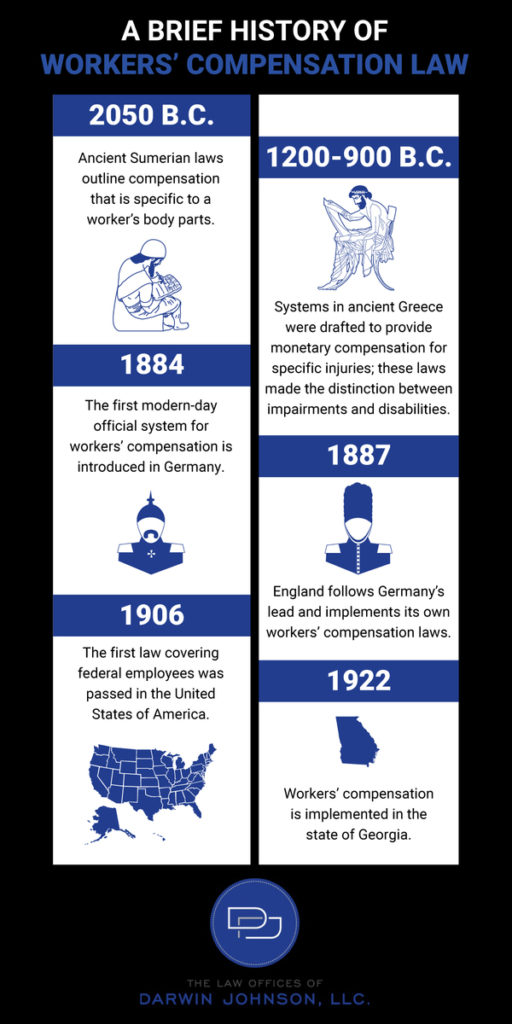By Darwin F. Johnson on November 8th, 2019 in Workers Compensation
The first worker’s compensation system was implemented in Germany back in 1884. England followed in 1897. However, it was not until the early 1900’s that the United States put worker compensation laws into effect. President Theodore Roosevelt enacted the Federal Employers’ Liability Act (FELA) to compensate railroad workers that became injured on the job. While there are differences between FELA and modern-day Workers’ Compensation, the commonality lies within the intent; the protection of the employee using monetary benefits to make up for lost wages and cost of medical treatment. The Progressive Era produced reforms that shifted focus to occupational health and offered employees legal safeguards. While the national push was in full swing, it was up to the individual states to adopt their laws when they wanted.

Georgia Before Workers Compensation
Before Georgia adopted workers’ compensation laws, it was challenging for an employee to receive restitution for an injury for a few reasons. Many workplace injuries at the time were a result of the dangerous nature of the workplace. Building a case that claimed negligence of the employer proved difficult. Employers were able to defend themselves against this argument using the idea that the worker operated under an “assumption of risk.”
The rise of cotton manufacturing led to the litigation of injured textile workers to rise. Pressure from the state’s Federation of Labor, coupled with the National Civic Federation initiatives, Georgia finally implemented workers’ compensation in 1920. It was the 42nd of the 50 states to pass the laws.
Modern Compensation
Unless a company is self-insured, it must provide insurance with as little as three employees. Instead of workers having to prove that the employer was at fault or negligent to receive any compensation, a standard employee has insurance that covers all of their medical treatment (with a few exceptions). Specific industries, such as maritime and railroad, follow their own compensation systems. Georgia workers’ compensation laws do not provide coverage for pain and suffering or punitive damages.
While Workers’ Compensation is designed to function with as little litigation as possible, there may come a time where you need representation; The Law Offices of Darwin F. Johnson are here to do just that. Contact us today to learn more.
